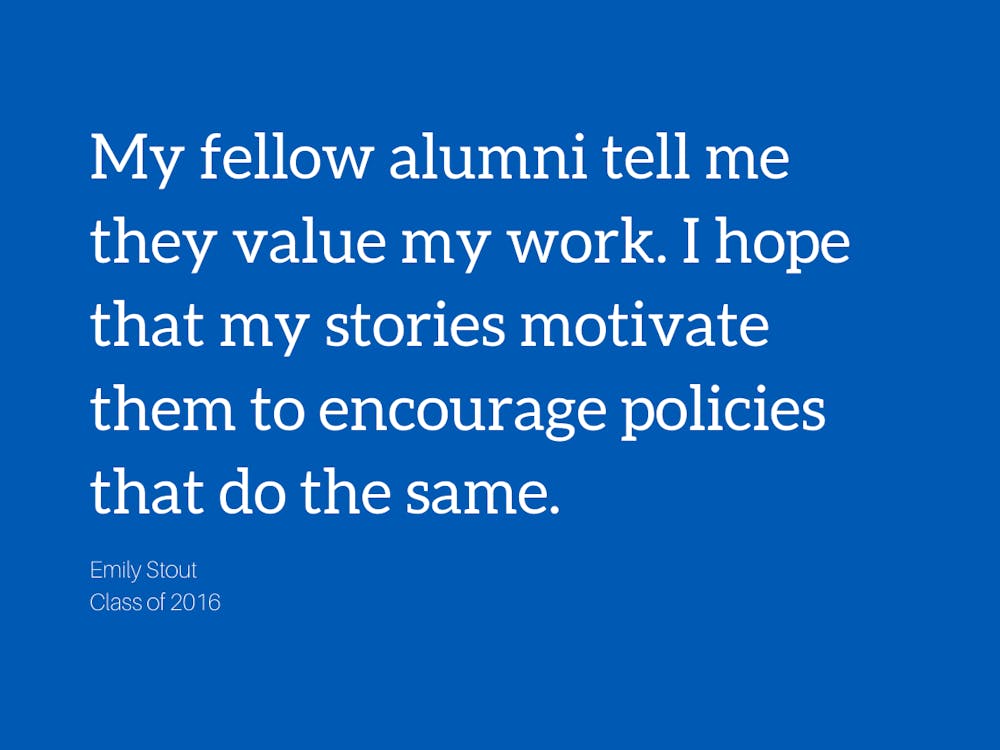“Why did you go to Duke to become a teacher?”
I’ve answered this question countless times. I’ve been teaching high school social studies at a North Carolina public school for four years. Nope, not Teach for America, just plain old public school teaching.
The second part of the question is easy. I love my students, and I love building their interest in government and current events.
The first part? Not so much. It frustrates me that people don’t see my profession as “deserving” of the education I was lucky enough to receive. On a recent professional development trip sponsored by Duke TeachHouse, I had the chance to tell my story.
While visiting Washington, DC, I spoke on a panel of Duke alumni involved in education. The event, titled “We Are All on the Students’ Side: Finding Common Ground in the Education Landscape,” was simulcast to Program in Education students, faculty, and alumni in Durham.
Of the four panelists, I was the only classroom teacher.
I spoke about my incredible students, but I also shared some of the barriers that make my job harder. In addition to teaching up to 72 students at once, I have also played school nurse (ours only comes twice a week) and social worker (we had one until yet another budget cut two years ago). My textbooks are from 2005 and falling apart, but copies are difficult to make when we frequently run out of paper. Thankfully I haven’t had to take a bullet for my students.
I’m grateful that Dr. Jan Riggsbee—Duke professor, Elementary Teacher Preparation Program director, Duke TeachHouse director, former elementary school teacher and principal, mentor extraordinaire—publicly gave up her seat on the panel, citing the importance of teacher voice, so that I could be on it.
Teaching is literally written in Duke’s history. In the founding document of the Duke Endowment, James B. Duke stipulated that Duke must include “a School for Training Teachers.” And Duke played a huge role in my career choice.
I am the product of an internship at the Partnership for Appalachian Girls’ Education, two summers working for Duke TIP, the Education minor, and the Secondary Teacher Preparation Program. I got a blue-and-white cord for commencement, and in the program, a star next to my name denotes my teaching certification. Since starting my job, I’ve been involved with Duke TeachHouse, a residential fellowship for beginning teachers in the Triangle.
My fellow alumni tell me they value my work. I hope that my stories motivate them to encourage policies that do the same.
As much as I love sharing my story, I’m not at the table when policy is on the line. And that needs to change.
Take after Dr. Riggsbee. Make a place for teachers’ stories in every conversation about education at every level. Invite teachers of all levels, especially teachers of color, to the table.
Better yet, if you’re passionate about education, make the decision I did.
I went to Duke and became a teacher because teaching matters. Our stories, and our students’ stories, deserve to be told.
Emily Stout is a local teacher who graduated with the Class of 2016.
Get The Chronicle straight to your inbox
Signup for our weekly newsletter. Cancel at any time.

